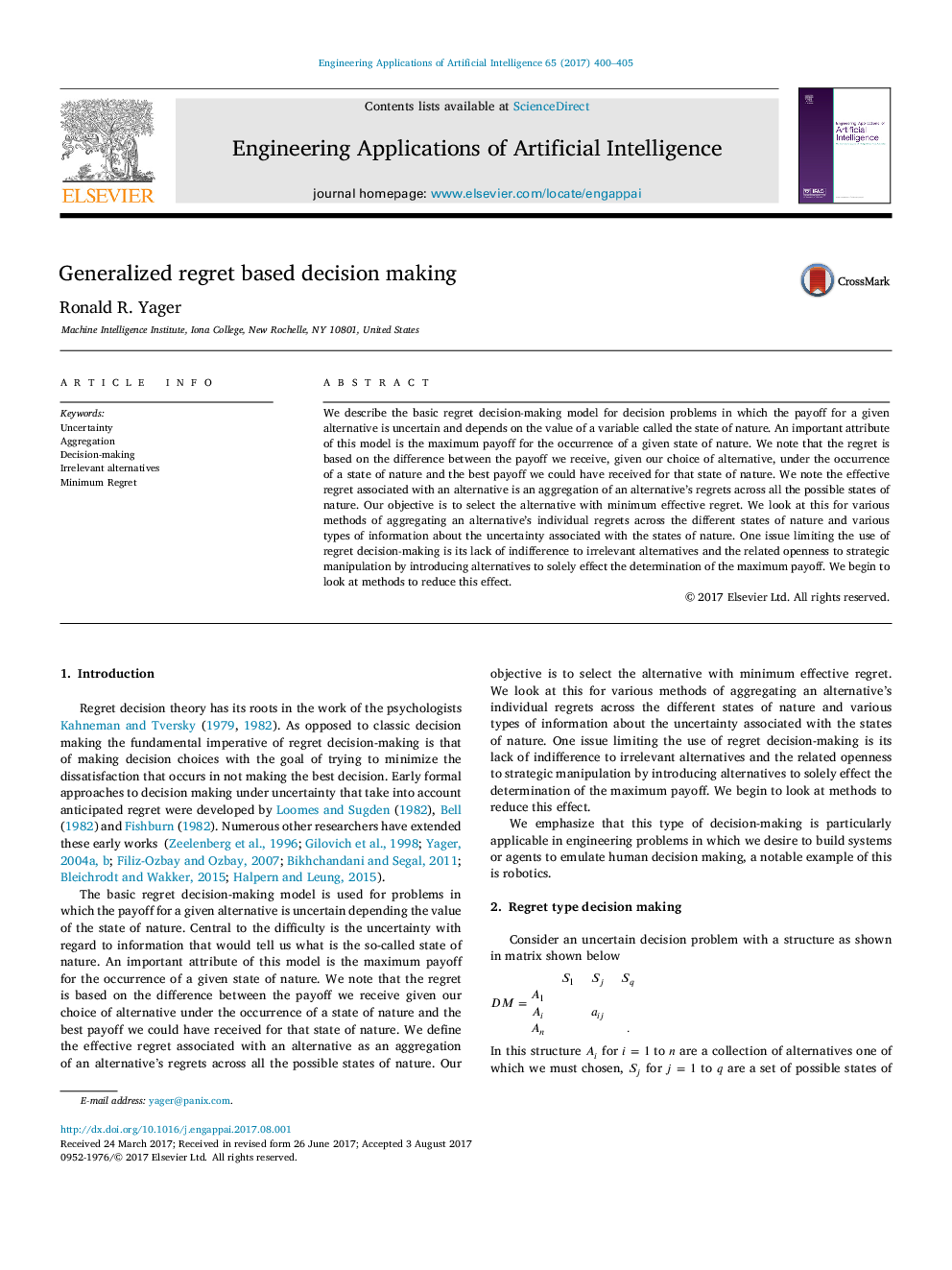| Article ID | Journal | Published Year | Pages | File Type |
|---|---|---|---|---|
| 4942611 | Engineering Applications of Artificial Intelligence | 2017 | 6 Pages |
Abstract
We describe the basic regret decision-making model for decision problems in which the payoff for a given alternative is uncertain and depends on the value of a variable called the state of nature. An important attribute of this model is the maximum payoff for the occurrence of a given state of nature. We note that the regret is based on the difference between the payoff we receive, given our choice of alternative, under the occurrence of a state of nature and the best payoff we could have received for that state of nature. We note the effective regret associated with an alternative is an aggregation of an alternative's regrets across all the possible states of nature. Our objective is to select the alternative with minimum effective regret. We look at this for various methods of aggregating an alternative's individual regrets across the different states of nature and various types of information about the uncertainty associated with the states of nature. One issue limiting the use of regret decision-making is its lack of indifference to irrelevant alternatives and the related openness to strategic manipulation by introducing alternatives to solely effect the determination of the maximum payoff. We begin to look at methods to reduce this effect.
Related Topics
Physical Sciences and Engineering
Computer Science
Artificial Intelligence
Authors
Ronald R. Yager,
